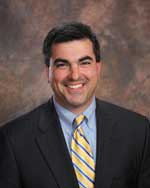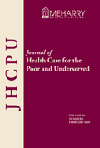By Craig A. Kennedy, MPH
By now you’ve heard or read enough news to know that a government shutdown is very possible come October 1st, but what does it mean to health care delivery? Well, as you would expect, it means different things to different programs.
Let’s start with the definition of a “government shutdown.” The federal government’s fiscal year runs from Oct. 1 to Sept. 30, so by October 1st of each year Congress must pass and the President must sign appropriations bills to fund discretionary programs or no money can be spent on those programs. Mandatory programs, also known as entitlement programs — Medicaid, Medicare, Social Security, etc. — don’t require an appropriation, since they are funded regardless. But the salaries of the employees who run the entitlement programs are not automatic, so delivery of benefits could be delayed by the government shutdown if it persists for any length of time.
Discretionary programs consist of just about every other federal program you’ve heard of, such as: the National Park Service, NASA, many health care programs run by the Department of Health and Human Services (Ryan White, CDC, NIH, etc.), and even the Defense Department (although much of their actions are exempt as “national security” functions). All of these will be forced to cease operations on October 1 except for “essential personnel” to keep the lights on. The problem is you can’t just start and stop these programs without wreaking real havoc on those who run the programs, including state and local partners.
Two programs that are of significant interest to ACU are the Health Centers Program and the National Health Service Corps (NHSC). Let’s begin with the NHSC. Since FY2012 the program is being funded by a Trust Fund (not discretionary funding), so they will be able to continue operating, even under a government shutdown, until the Trust Fund expires in Oct. 2015 (see our website for the Campaign to Save the NHSC). Alternatively, the Health Centers program is funded by both discretionary and mandatory funding ($1.6 billion in annual funding and $2.2 billion in a Trust Fund, respectively). In the event of a shutdown, HHS would not be able to fund new grants or renewals of existing grants unless they were able to use only the Trust Fund money to do so. Depending on the duration of the shutdown, as well as HHS’ operational and legal ability to move funds in this manner, Health Centers may see less immediate impact than other programs (this is a BIG maybe, and any local impact is based on your grant award date and the length of the shutdown).
However, there is still the matter of government employees who run both the Health Centers program and the NHSC. These people’s salaries are largely paid by the discretionary funds, so many may be furloughed beginning Oct. 1. This also applies to employees running many mandatory programs as well, such as Medicaid and Medicare. The benefits aren’t in jeopardy, but many of the people who run the programs are. Thus, a government shutdown will create a mess with consequences lasting longer than the shutdown itself.
So let’s all hope that cooler heads prevail and our government can continue to function without a shutdown. A functioning federal government is in everyone’s best interests. If folks want to end certain programs, let’s have that debate — but don’t hold effective programs hostage to get there.
 Follow
Follow





Follow Us!